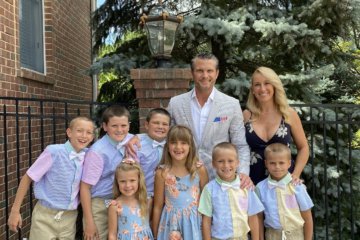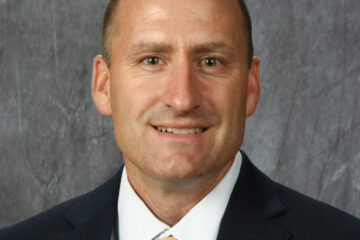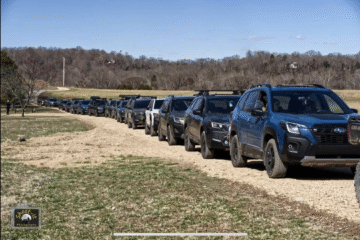In April of 1944, 12-year-old Fritz Vincken was living in the German city of Aachen when a bomb destroyed his home.
“My mother and I were sitting in the basement when the bomb went off and our home collapsed,” he said in a 1997 interview. “Suddenly we were homeless. I was twelve years old when the heavy bombing raid on the city of Aachen left my family homeless. My parent’s bakery had burned like a torch and together we were all evacuated out of the smoldering ruins to a village near the river Rhine, where we found shelter.”
Not long after, his father -a baker for the German Army- acquired a military transport truck and drove through the night to move his wife and son to lonely hut atop a wooded mountain in the Belgian Ardennes Forest.
On a bitterly cold Christmas Eve, Fritz and his mother, Elisabeth, were eating a makeshift Christmas meal of rooster and potatoes when they heard a loud knock at the door.
Answering the door, Fritz’s mother suddenly stood face to face with three American GIs of the 8th Infantry Division, one badly injured.
“My mother knew the penalty for harboring the enemy, but when she looked into the young Americans eyes and saw that one was badly hurt, she opened the door and let them in,” Fritz recounted. “We did not speak English, but one of the Americans spoke French to my mother and she could converse with him in French. We learned that the stocky, dark haired fellow was Jim; his comrade, tall and slender, was Ralph. Herby was the wounded one. We added more potatoes to our dinner and made extra places at the table.”
Suddenly, a tense situation became potentially deadly as the family heard a second knock at the door.
Fritz held his breath, fearing that the second wave of guests were his own countrymen. Upon answering the door, his fears were confirmed- there were four German soldiers at the door.
Taking the initiative, Elisabeth stood firm and spoke to the German soldiers. As it turned out, they were lost and were seeking shelter from the sub-zero temperatures after days of wandering. She agreed to let them in, but under two conditions: accept her American guests and leave their weapons outside.
Agreeing to her terms, both the American and German soldiers were temporarily disarmed and permitted to stay in the shack.
The icy demeanors inside the cabin began to thaw when one Wehrmacht soldier -a medical student before the war- began to patch up Herby’s wounds.
Sitting down for dinner, Elisabeth said a prayer, asking God for one night of peace and that all those seated at the table would survive the war. By the end of the prayer, all the soldiers were quite emotional.
From then on out, things were different. For one night, there was no war. Only seven men and a family in a cabin, trying to stay warm, eat a hot meal and get some sleep.
By the time morning rolled around, the soldiers were re-issued their weapons, but not a shot was fired. The Germans helped created a makeshift stretcher for Herby, handed a compass to the Americans and gave them directions to get back to their lines.
Knowing they couldn’t stay, Elisabeth and Fritz went back to the German lines with their fellow Germans, eventually reuniting with Fritz’s father.
When asked what kept him alive, Fritz gave full credit to his mother.
“The inner strength of a single woman, who, by her wits and intuition, prevented potential bloodshed, taught me the practical meaning of the words: ‘Good will Toward Mankind,’” he said.
“Now and then, on a clear tropical winter night, I look at the skies for bright Sirius and we always seem to greet each other like old friends. Then, unfailingly, I remember mother and those seven young soldiers, who met as enemies and parted as friends, right in the middle of the Battle of the Bulge.”
Fritz eventually took his story to Unsolved Mysteries, a syndicated show that ran from 1987-2008. Thanks to assistance from the show, Fritz was eventually reunited with Ralph Blank, who was a Sergeant at the time of their first encounter. In 1996, the two were reunited at Blank’s retirement home in Maryland, one day after Blank’s 50th wedding anniversary.
“When he told me, ‘Your mother saved my life,’ it was the high point of my life,” Vincken said at the time. “Now, I can die in peace. My mother’s courage won’t be forgotten, and it shows what goodwill will do.”
Larry L. Crain
Crain Law Group, PLLC














